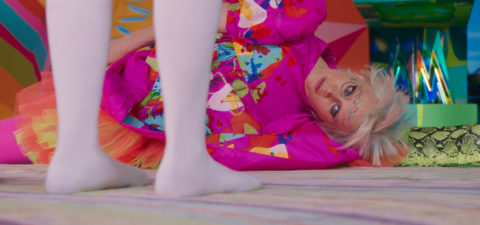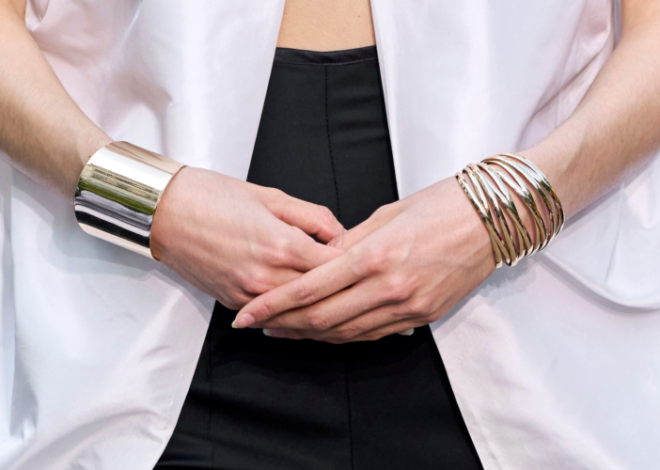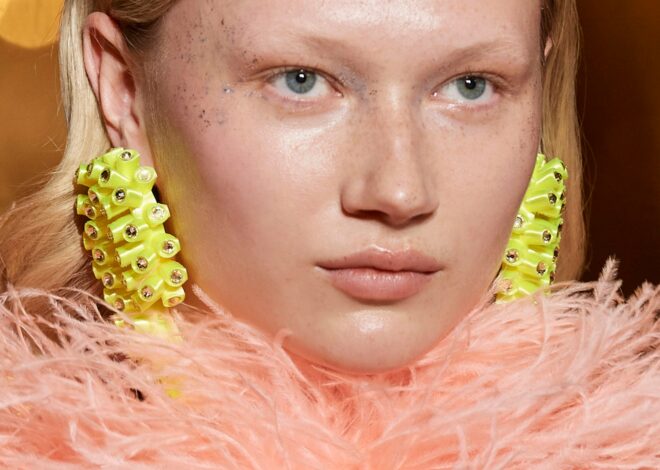Justice for Weird Barbie
- Being Outside Is Good For Your Body and Mind — Here’s Why - December 14, 2023
- The Chicest Bracelets for Women (All Under $100) - December 14, 2023
- Water Is Life — Here Are 11 Simple Ways to Drink More of It - December 14, 2023
In Barbie Land, what happens when you’re not perfect?
Everyone who has played with dolls has a Weird Barbie origin story. Maybe you tried to give your doll some layers with dull kitchen scissors. Perhaps you were going for a sophisticated makeover by colouring her lips red with Sharpie. Before you knew it, your Stereotypical Barbie became Weird Barbie, and she was relegated to the bottom of your toy box. In the Barbie movie, we finally see her side of things. And it’s possibly the most important perspective to understand.
RELATED: Barbie Is Not Anti-Man at All, Actually
Alongside Margot Robbie clad in impeccable vintage Chanel outfits as the main character Barbie, Kate McKinnon’s Weird Barbie is the antithesis of an aspirational doll. Her roughly chopped hair juts out in every direction. Her face is tattooed with squiggly colourful pen marks. She wears paint-splattered clothes, she’s permanently in the splits, and she smells like “basement” (make of that what you will). Living in a lopsided house on the fringes of Barbie Land, Weird Barbie is a local outcast because, well, she’s no longer perfect.

Compared to the other Barbies, whose costumes often stayed true to the Mattel catalogue, Weird Barbie’s style is…experimental. She wears two chaotically clashing ensembles: a puffy pink dress with a bright tulle hemline and yellow snakeskin boots during the first half of the movie, and a jacket with silver detailing and kaleidoscopic trousers in the second act. Unlike the cookie-cutter dolls, Weird Barbie’s aesthetic was described by costume designer Jacqueline Durran as “very high fashion and conceptual.” Playing with exaggerated proportions and loud colour blocking, her wardrobe looks like it was dreamed up by a child. It’s also reminiscent of something you might find on a fanciful couture runway. Visually, she’s hard to understand, so the other Barbies write her off. But her character — and everything she represents — is crucial.
The thing is, even though she’s seen as “ugly” (the worst imaginable insult if you’re a Barbie), she’s the doll with the most critical thinking skills, foresight, and knowledge of the real world. After being socially discarded for losing her once-ideal image, she’s gained wisdom that helps the other Barbies navigate the film’s conflicts. Not to mention, she’s the only doll not to be brainwashed when (spoiler!) the villainous Kens briefly take over. Despite making her a reject, her kookiness makes her great. The same goes for all the mangled Barbies lost in basements.
Weird Barbie is so much more than a doll you light on fire as a kid drunk with power. Branded in the film as a toy that has been played with “too hard,” she’s emblematic of childhood whimsy. “It’s imagination,” McKinnon said in an interview discussing the process of mutilating a doll. “It’s a way of expressing your innermost desires and things that you’re exploring about yourself and the world.” At her core, Barbie bears the built-in expectations of womanhood: impossible body proportions; an always-amazing sense of style; effortless popularity. Tossing her in the microwave and dunking her hair in Wite-Out is certainly one way of pushing back on those pressures.
After all, we’re all closer to being Weird Barbie than Stereotypical Barbie. Her experiences — feeling like you don’t belong, being ostracized for your differences, blurting out awkward comments at the wrong time — are gloriously relatable, unlike Barbie’s commercialized image. Weird Barbie, in all her “unladylike” traits, is a symbol of rejecting beauty norms and framing femininity on your own terms. In the film, she’s been received as an allegory for those who have intersecting identities — with some women who are queer, plus size, and neurodivergent sharing that they feel a kinship with her.
Ultimately, every Weird Barbie is deeply personal. She’s not just some rare collector’s item like Allan or Midge. No one buys a Weird Barbie, you make her. She’s the manifestation of unbridled creativity, a dash of frustration, and, yeah, a bit of freakiness. The Barbie movie invites us not only to reconcile with the doll we once disfigured and tossed aside, but to also find her in ourselves.


